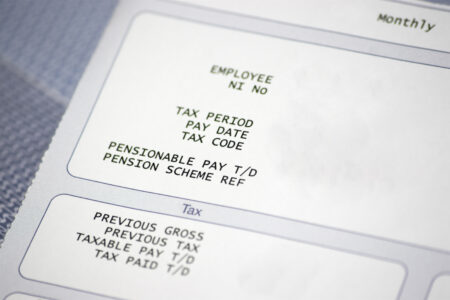In response to the financial difficulties many charities are now experiencing from the Coronavirus situation, the Government and the Charity Commission have given guidance and introduced a number of support measures.
Updated 7 July 2020
Latest guidance on Insolvency and Reporting Serious Incidents during and after Coronavirus
The Charity Commission has updated its guidance to include insolvency help for Charitable Companies and Charitable Incorporated Organisations (CIO). The guidance outlines the provisions that have been introduced to the Corporate Insolvency and Governance Act 2020 which will help Charitable Companies, and to some extent CIOs, to continue their operations and avoid insolvency during the COVID-19 pandemic and after. Read more here.
Reporting Serious Incidents
The Charity Commission have also updated their guidance on Reporting Serious Incidents during the coronavirus pandemic. They have published a supplementary table containing examples of incidents specific to COVID-19 that may require reporting. Read them here.
Charity Commission warns charities of increased risk of fraud and cybercrime during the coronavirus
Fraud and cybercrime have sadly increased as a result of coronavirus and the Charity Commission have issued guidance to charities to help them remain vigilent to different types of fraud and cybercrime (such as scam emails, procurement fraud, mandate fraud, advanced fee frauds). The guidance also includes:
- a link to a webinar about the risks of coronavirus frauds – what to watch out for and how to stay safe
- links to help charities who are a victim of fraud or cybercrime, to assist the trustees in reporting it to Action Fraud and the Charity Commission.
Read more here.
Government Support
In his speech on 8 April, Chancellor Rishi Sunak announced a number of support measures specificaly designed to help charities. The Government has also created a dedicated webpage for the Charity Sector (it does largely echo the advice from the Charity Commission). View the page here.
Key points from the Chancellor’s announcement included:
Charities can already utilise a number of the support measures introduced for businesses – like the Coronavirus Job Retention Support Scheme and paying no business rates for their shops next year.
In addition, the Government is going to make £750m of funding available to charities. Of this, £370m will be diverted to small local charities who are supporting vulnerable people. In England that support will be distributed via organisations such as the National Lotteries Communities Fund. Out of the £370m, £60m of support will be given via the Barnett Formula to Scotland, Wales and Northern Ireland.
A further £360m will be made available via grants to those charities providing services and support for vulnerable people. It will be given to organisations such as:
- hospices to help increase capacity and give stability to the sector
- St Johns Ambulance to support the NHS
- victims charities, including domestic abuse, to help with potential increase in demand for charities providing these services
- vulnerable children charities, so they can continue delivering services on behalf of local authorities
- Citizens Advice to increase the number of staff providing advice during this difficult time
Government departments are now working to identify priority recipients, with the aim for charities to receive money in the coming weeks. The application system for the National Lottery Community Fund grant pot is expected to be operational within a similar period of time.
Processing ticket refunds for cancelled charity events
On 16 April the Government published guidance regarding processing ticket refunds for cancelled charity events during the coronavirus (COVID-19) pandemic.
In summary, HMRC have agreed that where the individual due a refund decides to donate this to the charity, the charity may be able to claim gift aid as long as:
- the individual completes a gift aid declaration
- the individual does not receive a benefit as a result of their donation
Previously the charity would have needed to physically refund the ticket price for the individual to re-donate, but this is not required for events impacted by COVID-19. The guidance outlines the process that the charity needs to follow to claim the gift aid. You can read it here.
The Charity Commission’s Guidance
On 23 April The Charity Commission published some guidance for charities about managing financial difficulties caused by coronavirus. You can read it in full here
The guidance may be useful to charities who are facing challenging times, particularly smaller charities. It discusses how to proceed in the best interests of the charity and includes some useful steps the charity should take in making decisions covering the following in more detail. These are:
Step 1 – consider your current financial situation
Step 2 – options for minimising costs and protecting and increasing income
Step 3 – keep the charity’s operations and finances under regular review and take any additional actions
This is in addition to the guidance that The Charity Commission issued on 7 April, which you can read here,
It covers aspects such as:
- How do I get support to pay my charity staff?
- Can charities use reserves and restricted funds to help get through the crisis?
- Can a charity’s AGM or other key meetings be cancelled or postponed?
- Can online meetings be used to replaced face-to-face meetings?
- What do charities need to report to the Charity Commission?
Key points to note
Using a charity’s reserves to see them through COVID-19
The guidance recommends charities consider their short, medium and long term priorities and also identify which reserves are available to use.
We also recommend that you consider updating your risk register to include your assessment of the COVID-19 risk.
A charity’s governing document
A charity’s governing document outlines how they can make decisions, when and how often they should hold meetings (including AGMs). Some may not include provisions to have meetings via video or teleconferencing. The guidance from the Charity Commission is:
Trustees should check their governing document and see if they can make amendments themselves to facilitate changes as to how or when meetings are held.
Where there is no such clause in a Charity’s governing document and it decides to hold meetings over the phone or using digital solutions, the Charity Commission will understand but the Charity should record this decision and that it has done this to demonstrate good governance of itself.
Reporting to the Charity Commission
Charities have an obligation to report serious events to the Charity Commission. Therefore, charities should consider if the COVID-19 pandemic has resulted in any serious events that would need reporting.
SORP
The Charities SORP Committee has published guidance on the COVID-19 control measures and financial reporting by charities. It includes suggestions regarding:
- the trustees’ annual report
- the implications for going concern
- suggested solutions where the going concern basis of accounts preparation may not be appropriate
Read the guidance in full here.
Can our charity assist with COVID-19?
Charities may feel moved to help with COVID-19 and those impacted. While it may not be a problem, the Charity should check it is within its charitable objectives to do so, especially if it is outside its normal activities. For the latest guidance see here.
Other support measures in these unprecedented times
Annual Returns
If a Charity’s Charity Commission Annual Return is due imminently the charity can call the Charity Commission to request an extension. Charitable Companies can apply for an automatic 3 month extension from Companies House to file their accounts, but this does not extend to the Charity Commission’s deadlines.
The Charity Commission are encouraging charities to submit their annual reports on time, but to speak to them where the situation impacts on the completion of their annual return and accounts.
VAT deferral
For charities who pay VAT, those payments falling between from 20 March until 30 June 2020 could be deferred. Organisations have until the end of the financial year 2020/21 to pay those bills. Note the deferral period has now ended.
See more detail here.
Other support measures introduced by the Government
Other support measures introduced by the Government to help businesses may also apply to a Charity’s operations. See this overview here.
Can we help?
We are closely monitoring the Government announcements in relation to the Charity Sector and will update this page when fresh guidance emerges. In the meantime, if your Charity has questions or concerns relating to the coronavirus situation’s impact on its operations, please do get in touch with our specialist team. You’ll find their details on the right of this page.
Specific advice should be obtained before taking action, or refraining from taking action, in relation to this summary, if you would like advice or further information, please speak to your usual Shipleys contact.
Copyright © Shipleys LLP 2020












